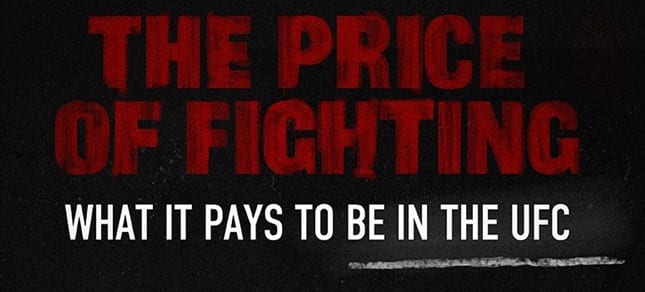
It’s not easy being green, as the old song says. But it’s not easy being black and blue either, so if you harbor dreams of becoming a UFC fighter and becoming a household name like Conor McGregor consider some of the challenging aspects of the career choice. Here’s a quick look at some of the toughest things these tough athletes have to endure.
Super-Strict Diets
While preparing for a match, competitors need to watch every single calorie they consume in order to meet weight requirements for their particular class, and to be healthy enough to last what could end up being multiple rounds of extreme physical exertion. You can forget about junk food and alcohol while training. Plus, if you want to earn passable money, you’ll need to compete several times per year. That means you’ll pretty much always be in training.
Want to go out with the family for pizza? Better not. Would you like to partake in the wonderful dinner at your friend’s wedding reception? Forget it. How about grabbing a fast-food meal on the way home from the gym so you won’t have to cook tonight? No way. Staying lean and muscular is what it’s all about, and that means denying yourself most of the good food that comes your way. If you see some of these guys being interviewed about their careers, they often point out that the strict meal plans can make life miserable for even the happiest of gladiators.
Low Pay
A recent study from Betway pointed out that UFC fighters make very little money. Except for the handful of household names in the sport, the brawlers tend to earn an average of $138,000 annually. Keep in mind that that’s a mathematical average and, by definition, includes the super-high earnings of the top echelon competitors.
In reality, before expenses and assorted fees, these ultimate warriors take home about half that much if they pay attention to what they spend while on the road and have good saving habits. But still, you might argue, that still comes to $69,000 per year, which is not bad money for a glamor job. There are two answers to that: First, $69,000 is the ideal take home pay, and even that amount is pre-tax income. If you live in the U.S., for example, you could end up paying a hefty self-employment tax of 15 percent on your take home earnings. Second, see point three about the length of the average career in the sport. Conclusion is that if you want to enter this profession, you had darn well better have a fallback career.

This infographic was created by Betway.
Short Careers
For all sorts of reasons, professionals in the UFC rarely last longer than two years. If you’re lucky enough to avoid serious injury that long, you might make it to the three or four-year mark. And because it’s primarily a game of young men, most UFC pros are veterans by the ripe old age of 30. In fact, it’s really a misnomer to call it a career at all. Boxing and rugby are much the same, in all fairness to ultimate fighting. Unless you are one of the very fortunate competitors who can last it out for several years and bank top dollar, there are hundreds of easier ways to make money.